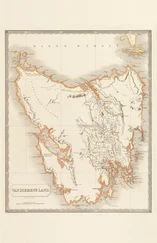Joshua Giddings - The Exiles of Florida
Здесь есть возможность читать онлайн «Joshua Giddings - The Exiles of Florida» — ознакомительный отрывок электронной книги совершенно бесплатно, а после прочтения отрывка купить полную версию. В некоторых случаях можно слушать аудио, скачать через торрент в формате fb2 и присутствует краткое содержание. Жанр: foreign_antique, foreign_prose, на английском языке. Описание произведения, (предисловие) а так же отзывы посетителей доступны на портале библиотеки ЛибКат.
- Название:The Exiles of Florida
- Автор:
- Жанр:
- Год:неизвестен
- ISBN:нет данных
- Рейтинг книги:5 / 5. Голосов: 1
-
Избранное:Добавить в избранное
- Отзывы:
-
Ваша оценка:
- 100
- 1
- 2
- 3
- 4
- 5
The Exiles of Florida: краткое содержание, описание и аннотация
Предлагаем к чтению аннотацию, описание, краткое содержание или предисловие (зависит от того, что написал сам автор книги «The Exiles of Florida»). Если вы не нашли необходимую информацию о книге — напишите в комментариях, мы постараемся отыскать её.
The Exiles of Florida — читать онлайн ознакомительный отрывок
Ниже представлен текст книги, разбитый по страницам. Система сохранения места последней прочитанной страницы, позволяет с удобством читать онлайн бесплатно книгу «The Exiles of Florida», без необходимости каждый раз заново искать на чём Вы остановились. Поставьте закладку, и сможете в любой момент перейти на страницу, на которой закончили чтение.
Интервал:
Закладка:
To this treaty some writers have traced the causes which produced the recent “Florida War.” They attribute to its stipulations that vast sacrifice of treasure, and of national reputation, which has rendered that territory distinguished in history. With that war, our present history is connected only so far as the Exiles were concerned in its prosecution; but it would appear difficult for any historian to overlook the important fact that obtaining possession of fugitive slaves constituted the moving consideration for this treaty, and the primary cause of both the first and second Seminole wars.
Most of this year was occupied in removing the Indians to their new territory. They also suffered severely for the want of food, and the attention of both Indians and officers of Government appears to have been occupied with these subjects.
In the autumn, Mr. Adams was elected President. But his policy was in part unfavorable to the Exiles. Removals from office under his administration were limited. If an officer were removed, it was not until after it had been ascertained that just cause existed for the removal. This policy continued nearly every man in office who had been connected with the Indian Department under the former Administration. Colonel Gad Humphreys had been appointed Agent for the Seminoles as early as 1822. He was a resident of Florida, and a slaveholder, deeply interested in maintaining the institution; but so far as his official acts have come before the public, he appears to have performed his duty with a good degree of humanity. Indeed, such were his efforts in behalf of justice to the oppressed, that he became obnoxious to Southern men, and was eventually removed from office on that account. William P. Duval was also continued in the office of Governor, and ex-officio Superintendent of Indian Affairs for the Territory of Florida. He was also a slaveholder, and resident of the territory; but even Southern men found little cause to complain of his devotion to liberty or justice. He, and many other officers, appear to have supposed the first important duty imposed on them, consisted in lending an efficient support to those claims for slaves which were constantly pressed upon them by unprincipled white men.
Early as the twenty-fifth of January, Governor Duval, acting Superintendent of Indian Affairs for the Territory, wrote Colonel Humphreys, giving him general directions in regard to the course which he should pursue in all cases where fugitive slaves were claimed. “On the subject (said he) of runaway slaves among the Indians, within the control of your agency, it will be proper in all cases, where you believe the owners can identify the slaves, to have them taken, and delivered over to the Marshal of East Florida, at St. Augustine, so that the Federal Judge may inquire into the claim of the party, and determine the right of property. But in all cases where the same slave is claimed by a white person and an Indian, if you believe the Indian has an equitable claim to the slave, you are directed not to surrender the slave, except by the order of the Hon. Joseph L. Smith, Federal Judge residing at St. Augustine; and in that case, you will attend before him, and defend the right of the Indian, if you believe he has right on his side.”
In all these cases, the slave or colored man, whether bond or free, was to be treated in the same manner as a brute. He was permitted to say nothing upon the subject of his own right to liberty. His voice was silenced amidst the despotism with which he was surrounded. No law was consulted. The belief of a slaveholding Agent decided the fate of the person claimed. Those who claimed to own their fellow men, would always find persons to testify to their claims, and it was in vain for an Indian to attempt litigation with a slaveholding white man before a slaveholding Judge. 57 57 It is an interesting fact, that the doctrine recently avowed by the Supreme Court of the United States, that “ black men have no rights which white men are bound to respect ,” was recognized and practiced upon in Florida, more than thirty years since, by the officers of Government.
The Exiles were not the property of the Indians in any sense. The Indians did not claim to own them. Under the rule prescribed, if a white man could get one of the Exiles within his power, he could at any time prove some circumstance that would entitle him to claim some negro; when he proved this, the law of Florida presumed every colored man to be a slave, unless he could prove his freedom. This, no Exile could do; and, when seized, they were uniformly consigned to bondage. The only safety for the Exile was, to entirely avoid the whites, who were not permitted to enter the territory except upon the written permit of some officer.
The slave-catchers, therefore, had recourse to the practice of describing certain black persons, in the Indian country, as their slaves, and demanding that the Agent should have them seized and delivered to him. But the Agent, knowing these claims to be merely fictitious in some instances, paid no attention to them. The claimants, intent on obtaining wealth by catching negroes, and selling them as slaves, complained of the Agent to the Commissioner of Indian Affairs, who, on the eighth of February (1827), wrote the Agent, reproving him for his remissness in failing to capture and return fugitive slaves, saying: “Frequent complaints have been made to the Department, respecting slaves claimed by the citizens of Florida, which are in possession of the Indians; all which have been acted on here, in issuing such orders to you as it was expected would be promptly obeyed; * * * and that these proceedings would be followed by the proper reports to the Department. Nothing satisfactory has been received. ”
Thus the Indian Bureau, at Washington, took upon itself the responsibility of deciding particular cases, upon the ex parte testimony which the claimants presented; and the commissioner concluded his letter by a peremptory order to Colonel Humphreys, directing him to capture and deliver over two slaves, said to be the property of a Mrs. Cook.
To this order the Agent replied in the language of dignified rebuke. After stating that one of the slaves had been captured by the Indians, and given up, he says: “but they will not, I apprehend, consent further to risk their lives in a service which has always been a thankless one, and has recently proved so to one of their most respected chiefs, who was killed in an attempt to arrest a runaway slave.” 58 58 Vide Executive Documents, No. 271, 2d Session XXVth Congress.
The love of liberty is universal. We honor the individual who gives high evidence of his attachment to this fundamental right, with which God has endowed all men, and we applaud him who manfully defends his liberty, whether it be a Washington with honors clustering upon his brow, or the more humble individual who defends his liberty in Florida, by slaying the man who attempts to deprive him of it. But these views were not recognized by the agents of our Government.
While the Department at Washington supposed the Agent to have neglected his duty, the Superintendent of Indian Affairs for the territory supposed the Agent had been quite too faithful to the slaveholders. On the twentieth of March he wrote Colonel Humphreys, saying, “ Many slaves belonging to the Indians ARE NOW IN POSSESSION OF THE WHITE PEOPLE. These slaves cannot be obtained for their Indian owners without a lawsuit;” and he then directed the Agent to submit the claim, in all cases where there was an Indian claimant, to the chiefs for decision.
In these contests between barbarians and savages, concerning the rights which they claimed to the bodies of their fellow men, the Exiles had no voice. They well understood that the rapacity of the slave claimants was unbounded and inexorable; they therefore endeavored to avoid all contact with the whites, and to preserve their freedom by affording the piratical slave-catchers no opportunity to lay hands on them.
Читать дальшеИнтервал:
Закладка:
Похожие книги на «The Exiles of Florida»
Представляем Вашему вниманию похожие книги на «The Exiles of Florida» списком для выбора. Мы отобрали схожую по названию и смыслу литературу в надежде предоставить читателям больше вариантов отыскать новые, интересные, ещё непрочитанные произведения.
Обсуждение, отзывы о книге «The Exiles of Florida» и просто собственные мнения читателей. Оставьте ваши комментарии, напишите, что Вы думаете о произведении, его смысле или главных героях. Укажите что конкретно понравилось, а что нет, и почему Вы так считаете.












